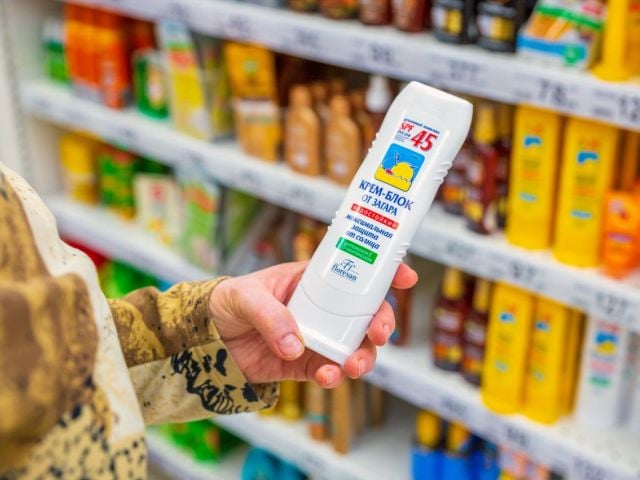
Here’s one more reason to cut back on highly processed foods, especially those containing artificial sweeteners: They’re associated with a higher risk of depression, a new study finds.
The paper, “Consumption of Ultraprocessed Food and Risk of Depression,” analyzed the link between diet and the risk of depression. Participants were assigned to one of five groups according to the amount of ultra-proccessed foods they consumed. Those who ingested the most ultra-processed foods had about a 50 percent greater risk of depression, compared to those eating and drinking the lowest amounts.
The new study reviewed the diet logs of more than 31,000 middle-age white women who are part of a long-term health study of nurses and who didn’t already have depression.
It’s the first large study to find a connection between these foods and depression. It adds to growing concern about the safety of ultra-processed foods, which in the U.S. make up about 60 percent of the typical adult diet and about 70 percent of what kids eat.
These foods have been linked to a range of health problems, including heart disease, stroke, obesity and other metabolic diseases.
The study, published in the peer-reviewed JAMA Network, was conducted by scientists from Harvard Medical School, Harvard T.H. Chan School of Public Health, and Massachusetts General Hospital.
Concerns about artificial sweeteners
Besides analyzing the connection between ultra-processed foods and depression, the study sought to identify the specific types of foods that might be most responsible.
The answer: Among ultra-processed food ingredients, artificial sweeteners and artificially sweetened drinks were most strongly associated with depression.
Years of research have led to questions about whether it’s healthy to consume these chemicals. They’ve long been associated with soaring rates of obesity and Type 2 diabetes, and recent research links their consumption with a higher rate of cardiovascular disease.
In June, the World Health Organization said the sweetener aspartame could cause cancer in humans. Research released in February showed a connection between erythritol, the ingredient in Truvia, and heart disease.
The new study adds to these growing concerns.
Defining ‘ultra-processed’
The study authors define ultra-processed foods as “energy-dense, palatable, and ready-to-eat items.” These foods may contain added sugar, salt and fat and chemicals like artificial colors and flavors or stabilizers – ingredients that rarely feature in home cooking.
Examples of these foods are some varieties of frozen meals, soda, hot dogs and cold cuts, fast food, and packaged items like cookies and chips.
The new study analyzed information from a long-term study of nearly 32,000 Massachusetts women. The study began before the women had depression, lowering the likelihood, says one author, “that our findings are simply due to individuals with depression being more likely to choose ultra-processed foods.”
The study included white women ages 42 to 62 only.
It’s communities of color and low-income communities that tend to consume greater quantities of ultra-processed foods. They typically have less access to fresh, less-processed foods and greater proximity to the kinds of foods the study focused on.
These low-quality, highly processed foods are likely to be more readily available at dollar stores and convenience stores, which are often located in communities of color and low-income communities.
The authors acknowledge that the lack of diversity among participants is a limitation of the study.
Accounting for multiple causes
Other factors may play a role in the development of depression.
Participants with a high consumption of ultra-processed food had a higher body mass index, a higher rate of smoking, were less likely to exercise regularly and higher rates of diabetes.
But the study didn’t see differences in rates of depression among groups of participants defined by age, smoking or other factors.
Regulating harmful food chemicals
Concern is growing about chemicals in our food.
In California, a bill awaiting the governor’s signature would ban four food chemicals, brominated vegetable oil, potassium bromate, propyl paraben and Red Dye No. 3, though not artificial sweeteners, from foods sold in the state. These chemicals are typically found in ultra-processed foods.
The Food and Drug Administration review process contains loopholes for food chemicals like artificial sweeteners. Chemicals banned or restricted in Europe are frequently permitted for use in food in the U.S.
What you can do
One of the depression study’s authors says the findings suggest a need to limit the consumption of ultra-processed foods, particularly for those struggling with mental health issues.
Until the federal government takes action to protect us from harmful food chemicals, here are some simple things you can do to protect our own health.
- Emphasize whole and unprocessed foods when planning meals. These include fresh produce, whole grains and nuts, and plain meat and dairy.
- Drink water rather than sugary or diet drinks.
- If you choose to eat and drink ultra-processed foods, try to limit your consumption. The study’s correlation of these foods and depression was predominantly among those consuming high quantities of the foods.
- Study ingredient labels. Some foods may seem fairly unprocessed but contain a number of food chemicals or be high in sugar, fat and sodium.
- Consult EWG’s Food Scores, which rates more than 80,000 foods in a simple, searchable online format to empower people to shop smarter and eat healthier.



